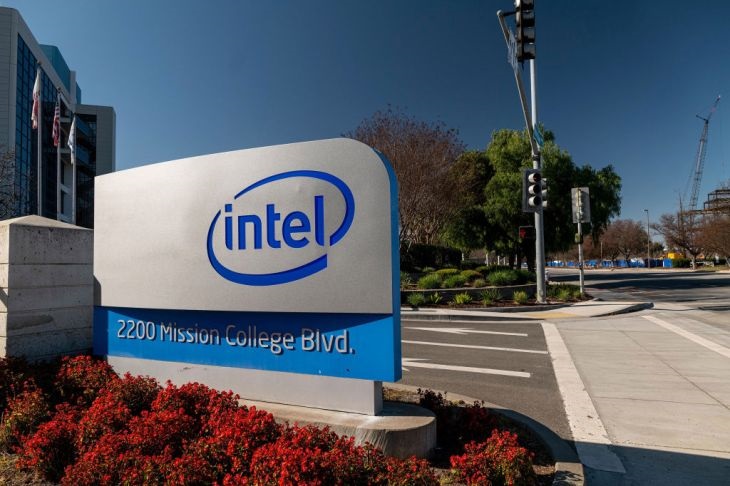
Intel Corporation’s stock plunged to historic lows on Friday, reaching a price level unseen since 2013. The dramatic selloff came on the heels of a dismal earnings report and the announcement of a sweeping restructuring plan aimed at steering the chipmaker back to profitability.
Intel’s stock plummeted 26% to close at $21.48, marking its second-worst day on record. The only more significant drop occurred in July 1974, when shares fell by 31%, three years after Intel’s IPO. This latest decline has slashed the company’s market capitalization to below $100 billion, a stark indicator of the challenges it faces.
Intel’s financial results for the quarter were nothing short of bleak. The company reported a net loss of $1.61 billion, a dramatic reversal from the $1.48 billion net income recorded in the same period last year. Adjusted earnings per share fell to a mere 2 cents, significantly below analysts’ expectations of 10 cents. Revenue also missed projections, underscoring the depth of Intel’s current struggles.
Register for Tekedia Mini-MBA edition 19 (Feb 9 – May 2, 2026): big discounts for early bird.
Tekedia AI in Business Masterclass opens registrations.
Join Tekedia Capital Syndicate and co-invest in great global startups.
Register for Tekedia AI Lab: From Technical Design to Deployment (next edition begins Jan 24 2026).
Intel has announced drastic measures, including suspending its dividend for the fiscal fourth quarter of 2024 and reducing its full-year capital expenditure forecast by over 20%. The company also revealed plans to lay off more than 15% of its workforce as part of a $10 billion cost-reduction initiative.
“This is the most substantial restructuring of Intel since the memory microprocessor transition four decades ago,” Intel CEO Pat Gelsinger told CNBC’s Jon Fortt in an interview that aired on Friday. “We have laid out an audacious journey of rebuilding this company, and we’re going to get that done.”
Intel’s decision to accelerate the production of Core Ultra PC chips, designed to handle artificial intelligence workloads, played a significant role in the quarterly loss. The company also faced intense pricing pressures from competitors like AMD, Qualcomm, and others, who have been steadily eroding Intel’s market share, particularly in the AI sector.
Layoffs and Broader Market Challenges
The job cuts, the largest listed on industry tracker Layoffs.fyi since its inception in March 2020, will primarily occur this year, according to Gelsinger. This move signifies a major shake-up as Intel attempts to regain its competitive edge in a rapidly evolving market.
However, the semiconductor market troubles touch other players, although in other ways. A report from The Information revealed that AI chipmaker Nvidia is under investigation by the U.S. Department of Justice for potential antitrust violations. The DOJ is reportedly examining complaints that Nvidia abused its market dominance in AI.
In response to the investigation, a spokesperson for Nvidia stated, “We compete based on decades of investment and innovation, scrupulously adhering to all laws, making NVIDIA openly available in every cloud and on-prem for every enterprise, and ensuring that customers can choose whatever solution is best for them.”
The spokesperson added that Nvidia is “happy to provide any information regulators need.”
The selloff reverberated through global markets. SK Hynix, a major supplier to Nvidia, saw its shares fall sharply, closing more than 10% lower. In Europe, shares of ASML, a key supplier of equipment for advanced chip manufacturing, along with STMicroelectronics and Infineon, also declined.
The VanEck Semiconductor ETF, which includes major sector players, dropped 5.5% on Friday, following a 6.5% decline the previous day.
Intel’s Troubles Far From Over
While the entire American stock market is in disarray, Intel’s predicament is particularly concerning. The company’s steep decline in stock value and its extensive restructuring efforts highlight that its troubles are far from over.
Intel reported a loss of $1.6 billion for Q2 2024, a significant increase from the $437 million loss in the previous quarter.
“Our Q2 financial performance was disappointing, even as we hit key product and process technology milestones,” Gelsinger admitted.
Although the company achieved critical milestones, revenues have not grown as anticipated, and Intel has yet to fully capitalize on emerging trends such as artificial intelligence (AI).
Investors have been critical of Intel’s financial performance, as the company has oscillated between losses and profits over the past two years, resulting in a cumulative gain of just $1.1 billion between Q2 2022 and Q1 2024. Intel has been the worst-performing tech stock in the S&P 500 this year, as noted by CNBC.



